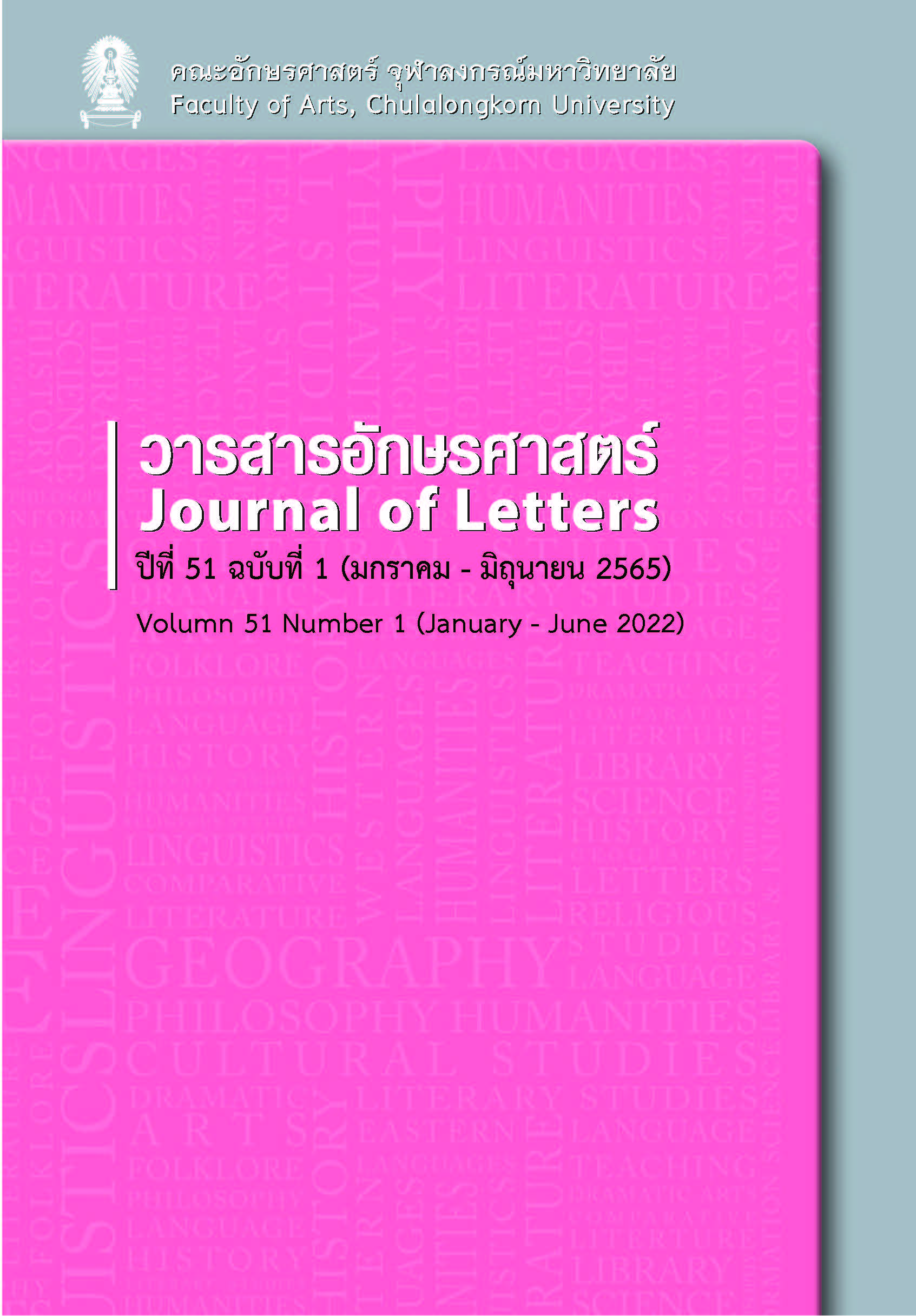Identity Formation of Migrant Characters in Catalin Dorian Florescu’s Novels Jacob beschließt zu lieben and Der Mann, der das Glück bringt
Keywords:
Catalin Dorian Florescu, identity, migration literature, Jacob beschließt zu lieben, Der Mann, der das Glück bringtAbstract
This research article outlines the process of identity formation of migrant characters in the novels Jacob beschließt zu lieben (2011) and Der Mann, der das Glück bringt (2016) by Catalin Dorian Florescu, a famous contemporary Swiss author who was born in Romania. The study shows that the characters in both novels form their identities in similar ways. Due to hard social contexts and their longings for survival, they form flexible and fluid identities which do not adhere to their ethnic and cultural roots. Such identity formation which crosses cultural boundaries, and the settings in places of cultural hybridity like Banat and New York, moreover, reflect the illusion of an essential, fixed and permanent identity and the assumption that a nation is composed of a single “pure” culture.
References
ภาษาไทย
Apinya Feungfusakul อภิญญา เฟื่องฟูสกุล. (2003). Attalak identity karn toptuan tridsadee lae krob naewkid อัตลักษณ์ Identity การทบทวนทฤษฎีและกรอบแนวคิด [Identity. a review on theories and concepts]. National Research Council of Thailand, Department of Sociology, National Research Council of Thailand.
ภาษาต่างประเทศ
Ackermann, I. (2007). Migrantenliteratur. In D. Burdorf, C. Fasbender, & B. Moennighoff (Eds.), Metzler Lexikon Literatur. Begriffe und Definitionen (3rd ed., pp. 498-499). Metzler.
Auanduengdee, G. (2020). Die Problematik der Identität und Integration der Migrantenfiguren in Özdamars „Die Brücke vom Goldenen Horn“, Vertlibs „Zwischenstationen“ und Florescus „Der Mann, der das Glück bringt“ [Unpublished Master’s Thesis]. Chulalongkorn University.
Barker, C., & Jane, E. A. (2016). Cultural Studies theory and practice (5th ed.). Sage.
Bauman, Z. (1997). Flaneure, Spieler und Touristen. Essays zu postmodernen Lebensformen (Martin Suhr, Trans.). Hamburger Edition.
Bauman, Z. (2004). Identity. conversations with Benedetto Vecchi. Polity Press.
Behrouzi-Rühl, J. S. (2007). Leitmotiv. In D. Burdorf, C. Fasbender, & B. Moennighoff (Eds.), Metzler Lexikon Literatur. Begriffe und Definitionen (3rd ed., p. 428). Metzler.
Britannica, T. Editors of Encyclopaedia. (2018). Lorraine. Encyclopedia Britannica. Retrieved July 10, 2021, from https://www.britannica.com/place/Lorraine-region-France.
Constantinescu, C. (2016). Postmodern readings of the relationship between space and identity. Metacritic Journal for Comparative Studies and Theory, 2(2), 73-90.
Fischer, M. (2017). Zwischen Authentizität und Folklorismus. Migration und Interkulturalität in Catalin Dorian Florescus Familienromanen. Germanistische Beiträge, 40, 28-47.
Florescu, C. D. (2014). Jacob beschließt zu lieben. (4. Aufl.). dtv.
Florescu, C. D. (2016). Der Mann, der das Glück bringt. Beck.
Glăvan, G. (2017). Revisiting the Eastern European provinces. Homelands and homecomings in Cătălin Dorian Florescu’s novels. Orbis Litterarum, 72(5), 384-410.
Guarda, F. V. (2013). Europa als ‚Schicksalsgemeinschaft‘? Das Beispiel von Catalin Dorian Florescus „Jacob beschließt zu lieben“ (2011). In P. Hanenberg & I. C. Gil (Eds.), Der literarische Europa-Diskurs (pp. 184-192). Königshausen & Neumann.
Hall, S. (1992). The question of cultural identity. In S. Hall, D. Held & T. Mcgrew (Eds.), Modernity and its futures (pp. 273-325). Polity Press.
Hall, S. (1996). Introduction: Who needs ‘identity’? In S. Hall & P. du Gay (Eds.), Questions of cultural identity (pp. 1-17). Sage.
Hopkinson, D. (2010). The amazing life of Harry Houdini. Scholastic Scope, 59(2), 4-8.
McCormick, M. L. (2011). Consensus, dissensus, and enforcement: Legal protection of working women from the time of the triangle shirtwaist factory fire to today. New York University Journal of Legislation and Public Policy, 14(3), 645-695.
Meixner, A. (2014). Zwischen Ost-West-Reise und Entwicklungsroman? Zum Potenzial der so genannten Migrationsliteratur. In R. Cornejo, S. Piontek, I. Sellmer & S. Vlasta (Eds.), Wie viele Sprachen spricht die Literatur? Deutschsprachige Gegenwartsliteratur aus Mittel- und Osteuropa (pp. 37-54). Praesens.
Moser, N. (2016). Deutschsprachige Migrationsliteratur in der Schweiz? Zur Prosa von Cătălin Dorian Florescu. In R. Radulescu & C. Baltes-Löhr (Eds.), Pluralität als Existenzmuster. Interdisziplinäre Perspektiven auf die deutschsprachige Migrationsliteratur (pp. 173-189). Transcript.
Portes, A., & Rumbaut, R. G. (2014). Immigrant America: A portrait (4th ed.). University of California Press.
Radu, D. M. (2018). Solitude, longing and struggle for survival in Cătălin Dorian Florescu’s “The man who brings happiness”. Analele Universităƫii din Oradea Fascicula Limba si Literatura Română (ALLRO), 1, 140-147.
Schenk, K. (2019). Europa in Bewegung. Figuren des Übergangs in Catalin Dorian Florescus „Jacob beschließt zu lieben“. In M. Bauer, M. Nies & I. Theele (Eds.), Grenz-Übergänge: zur ästhetischen Darstellung von Flucht und Exil in Literatur und Film (pp. 239-257). Transcript.
Sebaux, G. (2019). (Spät-)Aussiedler aus Rumänien. Bundeszentrale für politische Bildung. Retrieved July 10, 2021, from http://www.bpb.de/izpb/298587/spaet-aussiedler-aus-rumaenien
Spoerri, B. (2010). Auszug aus dem Interview mit Catalin Dorian Florescu und Christina Viragh. In M.
Kamm, B. Spoerri, D. Rothenbühler & G. D’Amato (Eds.), Diskurse in die Weite: kosmopolitische Räume in den Literaturen der Schweiz (pp. 160-167). Seismo.
Weinberg, M. (2014). Was heißt und zu welchem Ende liest man Migrantenliteratur? Mit Anmerkungen zum Werk Libuše Moníkovás. In R. Cornejo, S. Piontek, I. Sellmer & S. Vlasta (Eds.), Wie viele Sprachen spricht die Literatur? Deutschsprachige Gegenwartsliteratur aus Mittel- und Osteuropa (pp. 15-36). Praesens.
Downloads
Published
How to Cite
Issue
Section
License

This work is licensed under a Creative Commons Attribution-NonCommercial-NoDerivatives 4.0 International License.
Copyright and plagiarism
Authors are responsible for obtaining permission to use copyrighted materials from copyright owners. Authors are responsible for observing requisite copyright law when quoting or reproducing copyrighted materials. Quotations and reproductions of content from other published sources must be accompanied by a reference and all sources should be clearly listed in the references section. Quotations and reproductions of content from external sources without due attribution could be considered a severe infringement of academic conduct and may constitute a legal offence under the Copyright Act of B.E. 2537. Any legal ramifications arising from the infringement of copyright regulations would be the sole responsibility of the author(s).



